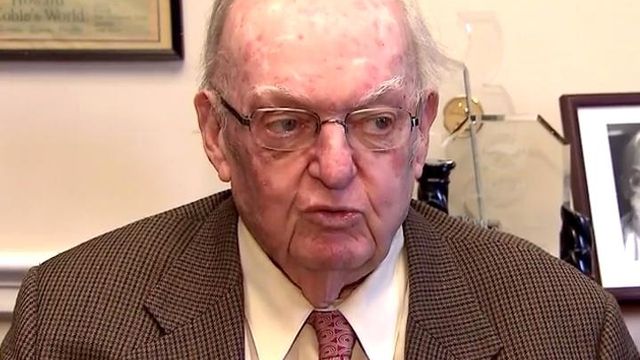'Cliff' deal produces more frustration than relief
Although Congress was able to pass legislation in a rare New Year's Day session that will prevent most Americans' income taxes from rising, politicians said Wednesday that they were frustrated and upset with the process.
Posted — UpdatedThe bill will boost the top 35 percent income tax rate to 39.6 percent for incomes exceeding $400,000 for individuals and $450,000 for couples while continuing decade-old income tax cuts for everyone else. In his re-election campaign last year, President Barack Obama had vowed to boost rates on earnings at lower levels – $200,000 for individuals and $250,000 for families.
The compromise hammered out by Vice President Joe Biden and Senate Minority Leader Mitch McConnell also raises taxes top earners pay on dividends, capital gains and inherited estates; permanently stops the alternative minimum tax from raising levies on millions of middle-income families; extends expiring jobless benefits; prevents cuts in Medicare reimbursements to doctors; and delays for two months billions in across-the-board cuts in defense and domestic programs slated for this year.
Thirteenth District Congressman Brad Miller was among 16 House Democrats to vote against the deal. He said it didn't address spending cuts and the federal debt ceiling, other than to delay the debate on those issues until March.
"This melodrama is going to go on. This self-created crisis is going to continue," Miller said. "Over the next two months, we’re going to see this again with even higher risk involved. If we don’t have the debt ceiling agreed to, we could default on our debt."
People on both sides of the debate lamented their failure to reach a significant deficit-cutting agreement.
"It's not uncommon to expect to see partisanship. It's going to rear its head time and again, as it did with this issue," 6th District Congressman Howard Coble said. "When you get a controversial piece of legislation as this one is and you have both sides not embracing it in toto, maybe we did the right thing."
Coble and U.S. Sen. Richard Burr were the only Republican members of the North Carolina delegation to support the bill. Seventh District Congressman Mike McIntyre joined Miller as the only Democrats from the state to oppose it.
"I think the winners were 98 percent of American taxpayers," Coble said, adding that he decided at the last minute Tuesday night to vote for the bill.
Economists told members of the North Carolina Chamber and the North Carolina Bankers Association on Wednesday that increases in payroll taxes might slow the state's economic recovery, but they still predicted slow but steady growth in the coming year.
Lew Ebert, president of the N.C. Chamber, said just having a deal in place should help the economy stabilize.
"To begin the year knowing what the effective tax rates are going to be for 2013 is an important degree of certainty, of predictability," Ebert said. "It's one less thing to factor into the economy, so I think, on balance, it's a positive for North Carolina business."
Gov.-elect Pat McCrory was less enthusiastic about the deal, saying Congress "has a lot of work to do."
"We need to come up with long-term solutions, and that's what I'm going to try to do for the state of North Carolina," McCrory said.
The looming debt ceiling deadline again threatens automatic spending cuts, as well as a default, credit downgrade or government shutdown.
"It can’t be ignored. If we ignore it, spending will continue and continue to be a primary problem," Coble said, adding that it's too early to discuss a government shutdown.
"The consequences to the economy will be much worse than anything that would have happened on Jan. 1 if Congress hadn’t acted," Miller said.
• Credits
Copyright 2024 by Capitol Broadcasting Company. All rights reserved. This material may not be published, broadcast, rewritten or redistributed.






